Appreciation: Anne Heche was an extraordinary actor. The movies never really figured her out
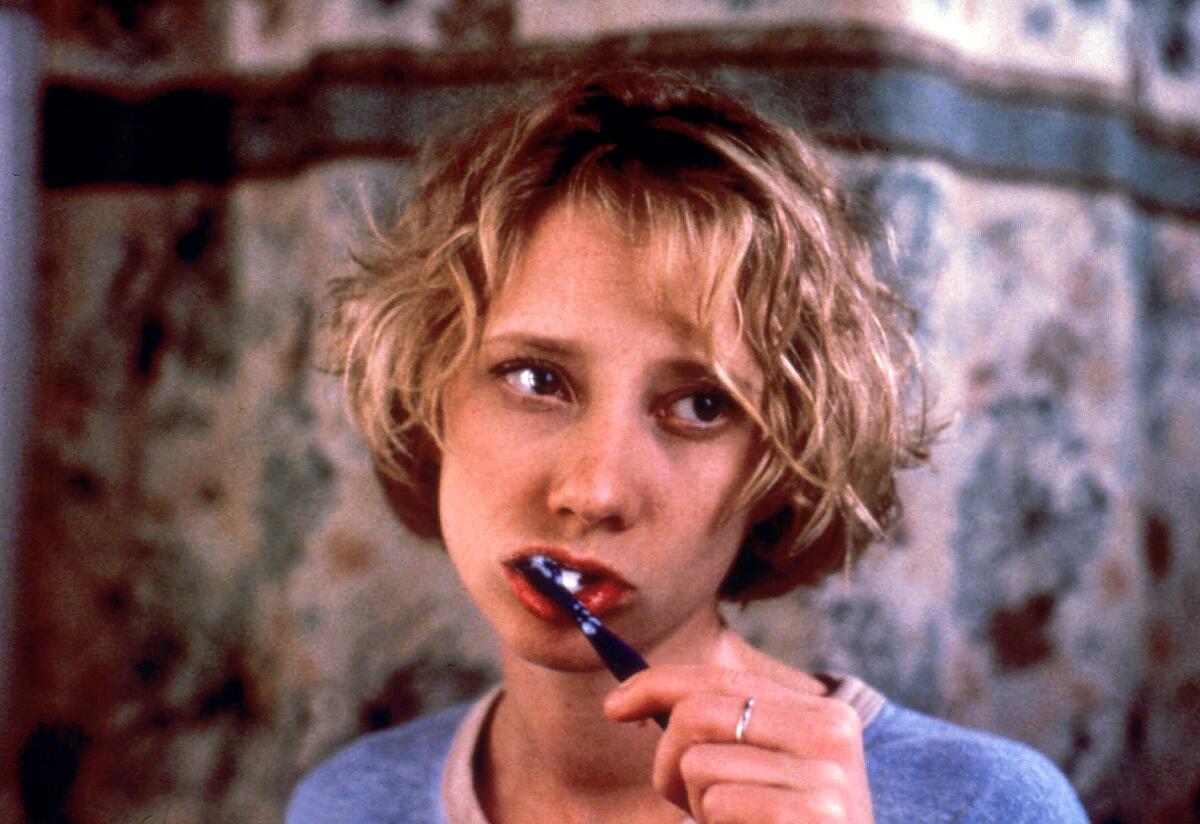
- Share via
One of Anne Heche’s greatest performances can be found in “Birth” (2004), Jonathan Glazer’s magnificently eerie drama about love, grief and the insidious power of suggestion. She enters the movie early, with long brown hair — a departure from the short blond cuts that had become a signature look — and a face that looks more tightly drawn, more sharply angled than usual. Her character, Clara, is cool and reserved, someone you might not immediately notice in a roomful of other demure, beige-coated Manhattanites. But then you catch her gaze, and Heche shows you a silent, unnerving glimpse of who Clara is: a bereaved lover, a glaring rival, a determined and vindictive agent of chaos.
It’s not immediately clear what connection Clara has to this puzzler of a story, about a woman (Nicole Kidman) whose life is rocked by the apparent reincarnation of her late husband as a 10-year-old boy. Heche teases out the answer beautifully; she appears in only a handful of scenes, but she charges every one of them with mischief and menace, and the performance builds to a kicker of tremulous erotic perversity: “I would’ve explored this,” Clara murmurs in the film’s funniest and most disturbing line.
The greatness (some would say the folly) of “Birth” is that it treats a preposterous, often inexplicable situation with the utmost somberness and gravity, an aim that is both strengthened and slyly challenged by Heche’s performance. More than the other characters, Clara is willing to take seriously — and yes, explore — the story’s outrageous premise. But she’s also the one who ultimately, firmly rejects it, with a cut-the-crap skepticism that Heche could do better than almost any other actor.
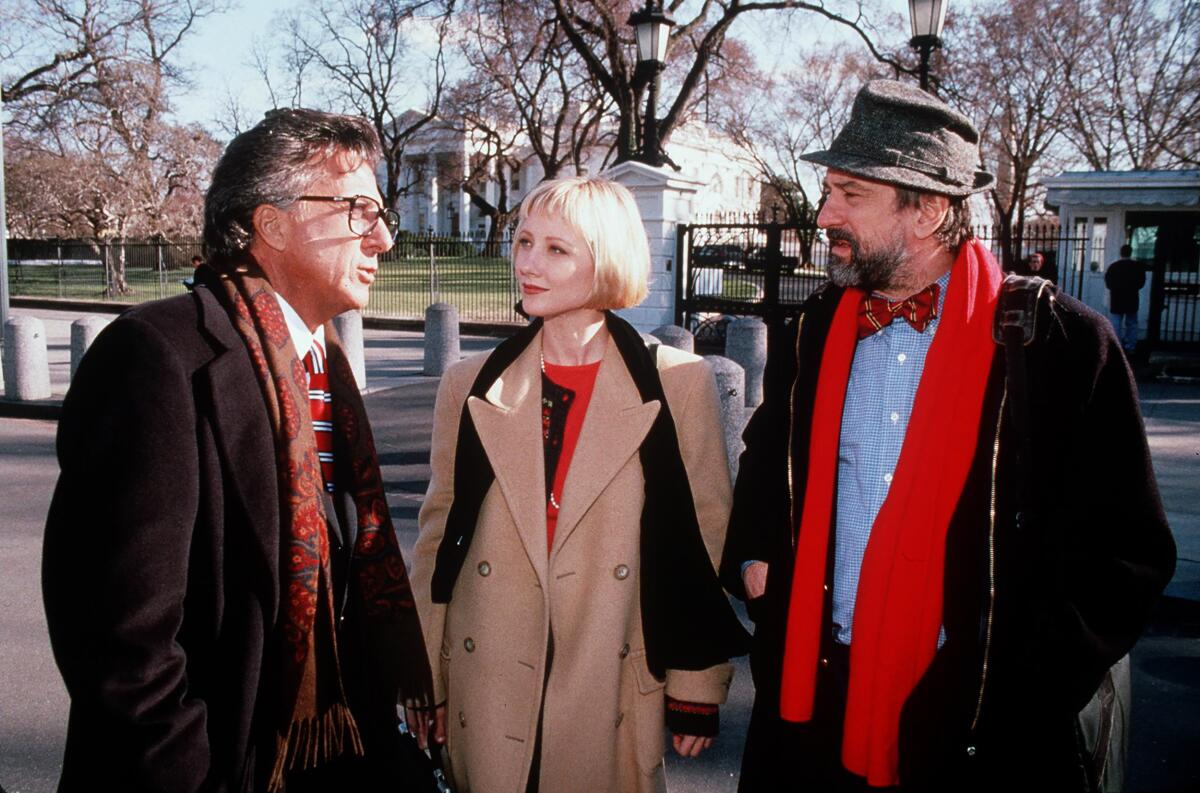
The movies themselves didn’t always know what to do with Heche, who died Friday at the age of 53, and so it was thrilling to encounter the ones that did. Another example, and still one of the best, was “Walking and Talking” (1996), the first of writer-director Nicole Holofcener’s many movies about smart, spiky, marvelously uncooperative women. As Laura, a newly engaged therapist and self-described “total f—ing mess,” Heche makes a prime, even prototypical Holofcener specimen. She lusts after a client, flirts with a waiter and complains to her fiancé about their boring sex life. She passes gas while trying on a wedding dress. She embodies one-half of a thoroughly believable friendship (with a terrific Catherine Keener). And she calls forth from Heche the kind of lived-in, messily human performance that American actors, especially women, encounter too rarely outside the independent realm.
But Hollywood opportunities soon beckoned, at least for a spell. The year 1997 was a huge one for Heche: She ran through clouds of ash in the disaster flick “Volcano,” gutted fish in the teen slasher thriller “I Know What You Did Last Summer” and matched wits with Robert De Niro and Dustin Hoffman in the shrewd media satire “Wag the Dog.” She was especially vivid opposite Johnny Depp in the mob drama “Donnie Brasco,” bringing an unusual emotional potency to the otherwise standard role of a long-suffering wife and mother. Heche could outclass her material without condescending to it; she could also jump-start an indifferently written scene by dint of her own wry wit and bristling energy.
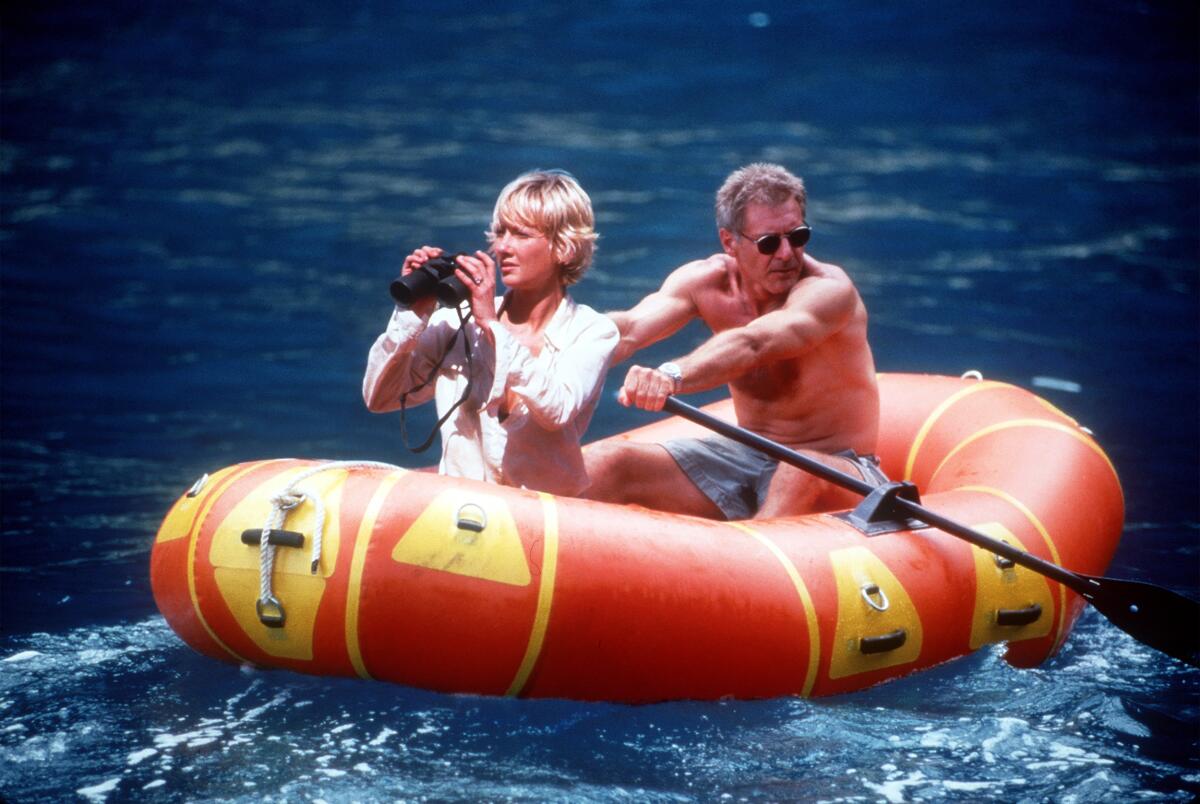
In 1998, Heche headlined her first major studio vehicle, the wilderness survival caper “Six Days Seven Nights,” in which she got to land a plane, attack pirates with a stick and knock boots in the surf with Harrison Ford. Directed by Ivan Reitman (who himself died earlier this year), the movie was likable if limp, but Heche was far and away the best thing about it, tossing off her lines with winning conviction and throwing every muscle of her slim, birdlike frame into the physically demanding survival scenes. Although widely panned, the movie fared better commercially than her other two big 1998 releases, the prison drama “Return to Paradise” and Gus Van Sant’s much-maligned “Psycho” (both of which, as it happens, co-starred Vince Vaughn).
As a teenage Hitchcock enthusiast, I eagerly sought out Van Sant’s “Psycho” in theaters, my curiosity about a shot-for-shot remake of one of my favorite films overpowering my suspicion that the result would be as dreadful as its reviews suggested. It pretty much was, though I haven’t forgotten the strange, prickly intensity of Heche’s performance as the doomed Marion Crane, which was all the more fascinating for short-circuiting our easy sympathy for one of the most heartbreakingly sympathetic characters in movie history. Heche’s Marion is a notably cooler customer than Janet Leigh’s and, as befits the updated ’90s time frame, a decidedly more modern creature. She’s less easily rattled by the police, more forthright about her sexual desires. She cracks jokes, rolls her eyes and sometimes holds the viewer at a glassy remove, one that doesn’t entirely melt away until that soon-to-be-bloodied shower curtain is wrenched aside.
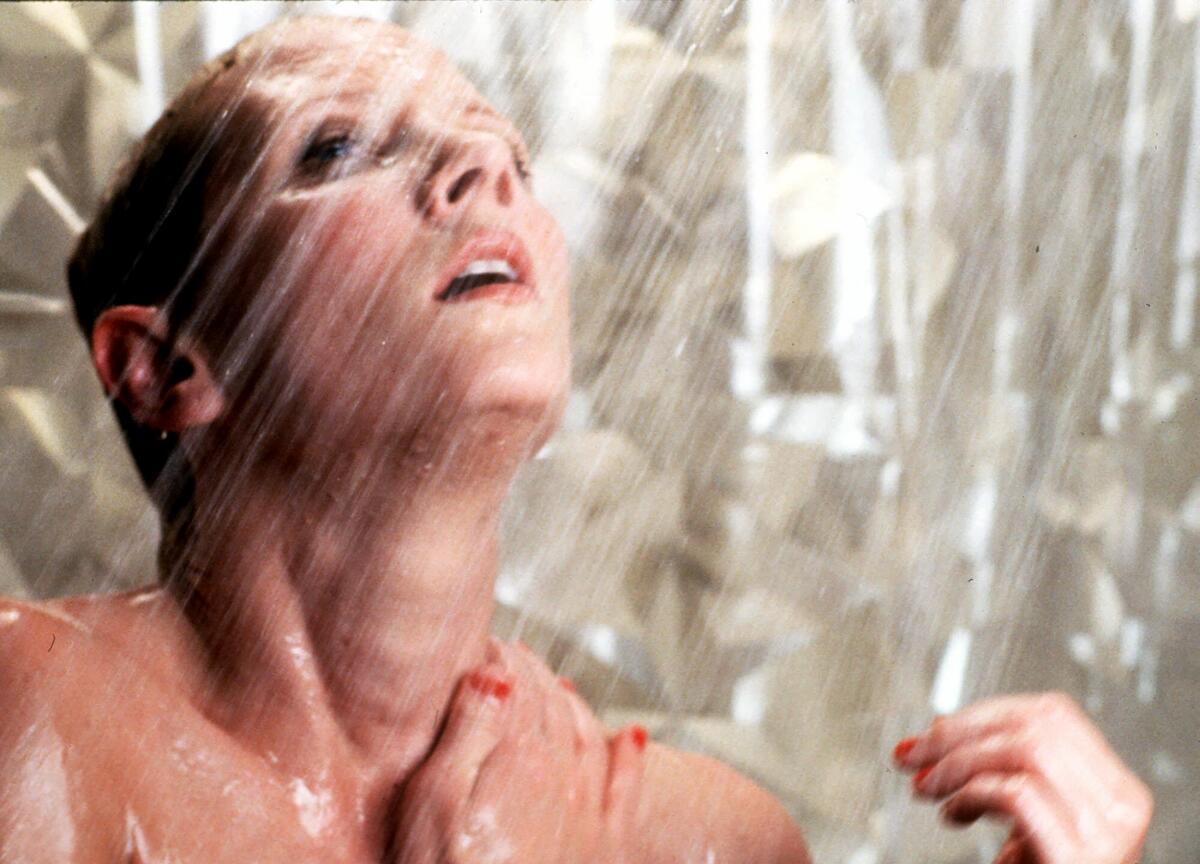
Van Sant’s movie is a weird experiment and hardly a successful one, but Heche’s unflinching performance might be the key to appreciating it. Her steely intelligence compels us to see this “Psycho” in terms beyond simple audience identification, to approach the movie on the more distanced, formalist terms that Van Sant, for better or worse, had in mind all along. It underscores one of Heche’s foremost strengths as an actor, namely her refusal of the obvious, her willingness to dig out the hidden, unrealized possibilities of a scene.
Simply put, she was never destined to be well served by a mainstream movie industry known for its committee-tooled vehicles and one-size-fits-all career trajectories. It’s unsurprising that her most emotionally satisfying work from this period was in “The Third Miracle” (1999), Agnieszka Holland’s deeply stirring, rigorously thoughtful and woefully underseen drama about a priest’s spiritual crisis. As Roxane, an atheist with serious doubts about her beloved mother’s candidacy for Catholic sainthood, a fabulously styled Heche sweeps through the movie’s cloistered settings like a welcome blast of rude energy. (Skepticism, again, was her strong suit.)
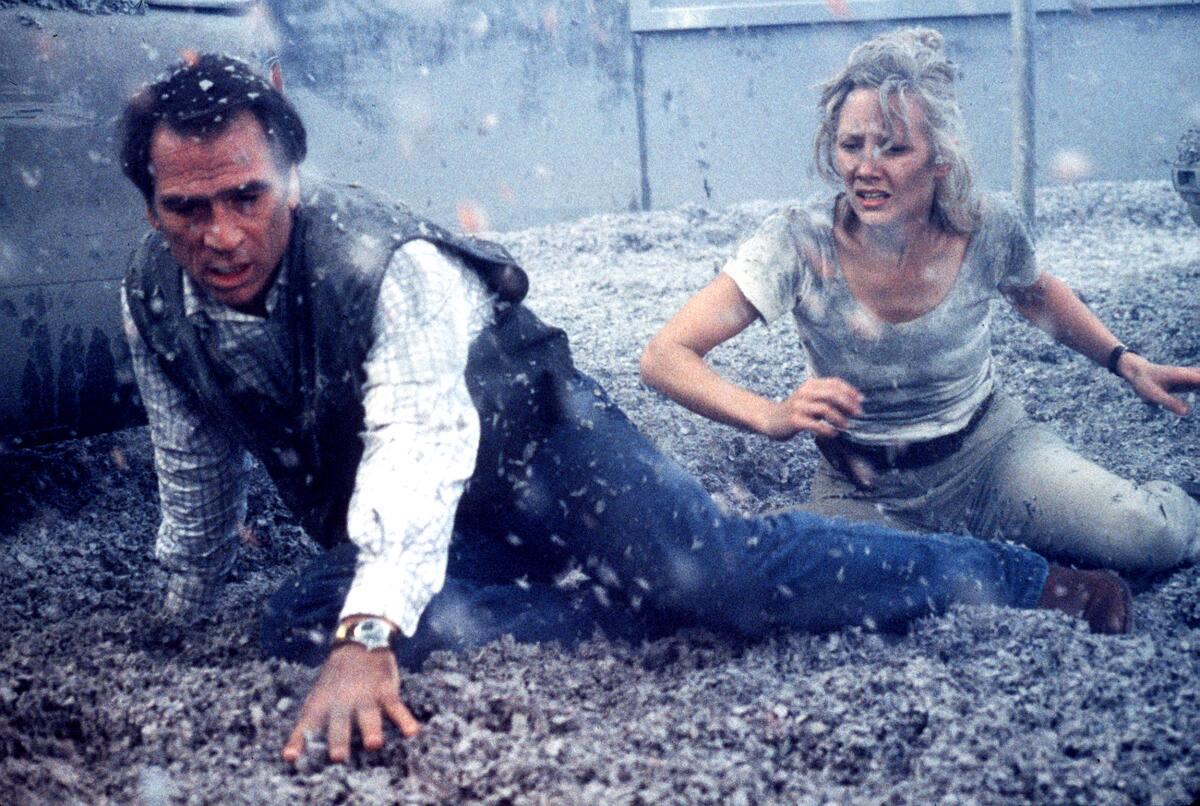
Some time after the big star vehicles stopped coming her way, Heche claimed in interviews that her much-publicized relationship with Ellen DeGeneres had torpedoed her chances as a viable leading lady. Given the still-rampant Hollywood homophobia of the early 2000s, it was and still is hard to refute the truth of her claim. It wasn’t the last time she would speak out about her often-tumultuous personal life (much of it detailed in her 2003 memoir, “Call Me Crazy”), with a touching candor that often left her open to tabloid ridicule. Nor was it the last time that tumult would be swept into the open, as evidenced this past week by the rampant online speculation over the fiery car crash that led to her untimely death. Like all idle gossip, it threatens to flatten the deeper truth of a human life and obscure the work of a remarkable career.
Heche kept working in movies, sometimes to standout effect; she was terrifically moving in the independent comedy “Cedar Rapids” and the tense dirty-cop thriller “Rampart.” But the movies gave her less and less back than she gave them, and she found more receptive audiences in theater and television. She earned a Tony nomination for her lead performance in the 2004 Broadway production of “Twentieth Century.” She appeared in numerous TV series, including “Nip/Tuck” and “The Michael J. Fox Show”; landed major roles in “Men in Trees,” “Hung,” “Aftermath” and “The Brave”; and competed on a season of “Dancing With the Stars.” “The Idol,” an upcoming HBO Max series, will mark her final screen appearance.
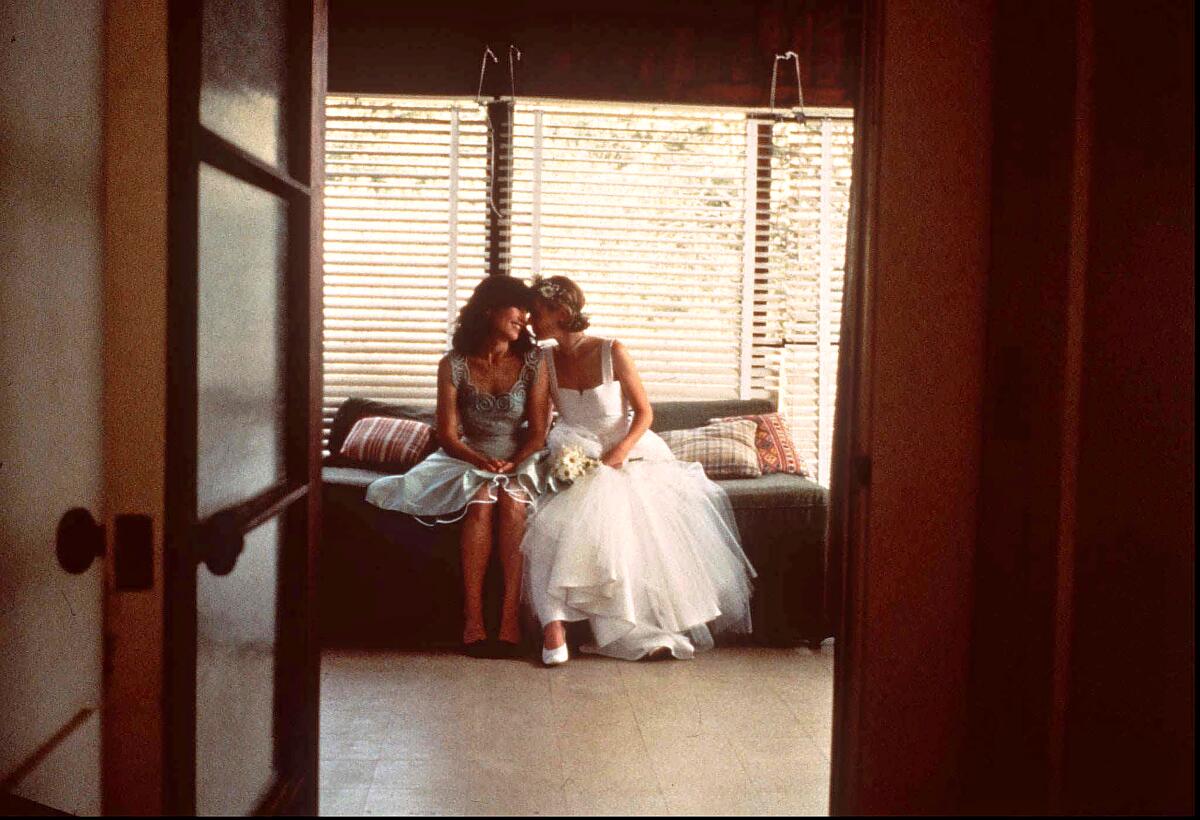
TV had always been good to Heche. She famously got her acting start on NBC’s “Another World,” playing twin sisters Vicky and Marley, two of the show’s most enduring heroines. As it happens, “Another World” was one of a few soap operas on semi-regular home rotation when I was growing up, around the time that Heche’s stellar performance won a 1991 Daytime Emmy for younger actress in a drama series. She wasn’t in Los Angeles to accept the award; as she recounted in an Associated Press video interview years later, she watched the show from a hotel room in Nebraska, where she and Jessica Lange were shooting the made-for-TV movie “O Pioneers!”
Shocked at having won, Heche asked her agent, “Does this mean I’m an actress?” It did, and she was — a far greater one than the industry realized or deserved.
More to Read
Only good movies
Get the Indie Focus newsletter, Mark Olsen's weekly guide to the world of cinema.
You may occasionally receive promotional content from the Los Angeles Times.











